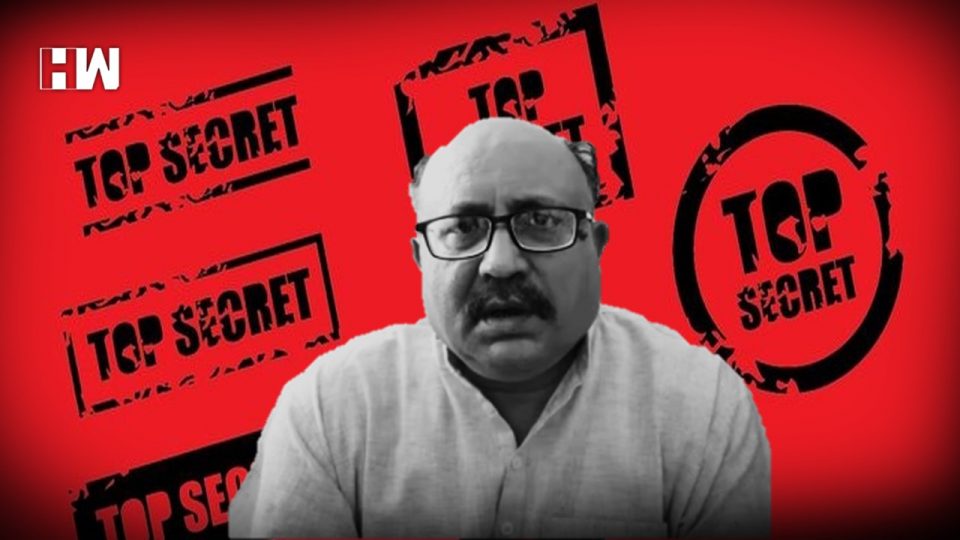The police claimed that Rajeev Sharma had passed sensitive information to Chinese intelligence and received a large amount of money routed through shell companies.
New Delhi| A freelance journalist based in Delhi has been arrested under the archaic Official Secrets Act, Delhi Police said on Friday. Rajeev Sharma- a freelance journalist was found in possession of defence-related classified documents, Delhi Police said. The arrest was carried out by a special cell of Delhi Police.
Though the news of the arrest came out on Friday i.e. September 18, Rajeev Sharma was arrested by Delhi police on September 14 i.e. on Monday, as per media reports. The police also seized his mobile phones and laptop. A day later he was produced in the local court. The court has sent him to six-day police custody and the police is checking his CDR.
Responding to the questions about the arrest, Deputy Commissioner of Police (Special Cell) Sanjeev Kumar Yadav said, “Investigation of the case is in progress and further details will be shared in due course.”

On Saturday, the police also arrested two more people connected with the matter. The police arrested a Chinese woman and her Nepalese aid who they accused of paying Sharma large amounts of money routed through shell companies. The police also alleged that Rajeev Sharma had passed sensitive information to Chinese intelligence. “Chinese intelligence tasked the journalist for conveying sensitive information in lieu of large amounts of money. A large number of mobile phones, laptops, and other incriminating/sensitive material have been recovered,” said Yadav.
Freelance journalist Rajeev Sharma (pic 1) arrested under Official Secrets Act for passing sensitive information to Chinese intelligence. A Chinese woman & her Nepalese associate also arrested for paying him large amounts of money routed through shell companies: Delhi Police pic.twitter.com/8cDHbwcFtB
— ANI (@ANI) September 19, 2020
Rajeev Sharma has worked with reputed news organizations in the country including the United News India, Sakaal Times, The Tribune, etc. He runs his own youtube channel named “Rajeev Kishkindha”. Reportedly, he had also written an article for the Chinese newspaper Global Times. Global Times is China’s state-owned media organization which regularly publishes articles against India.
The article authored by Rajeev Sharma published under the title ‘A rapprochement road map for Beijing and New Delhi benefits both countries’ argued how current stand-off could lead to a lose-lose situation for both the countries. “It’s a lose-lose situation for both. Their common objective must be to build a better and peaceful future for their peoples and not a military buildup against one another,” he argued in the article.
Also Read: Honey-trapped IAF officer arrested for sharing defence secret with ISI
Sharma’s Youtube channel has some 11000 odd subscribers. On the day of his arrest, he had uploaded two videos on the channel- one about the recent India-China stand-off and another about the state of Indian Media. In this video, he had said that Indian media instead of being a watchdog has turned into a lapdog.
His Twitter account at the moment is also been restricted. Significantly, Rajeev Sharma was among the many Indians who were notified that their phones were being surveilled using Israeli spyware Pegasus.

What is the Official Secrets Act?
Enacted in British Era, the Official Secrets Act (OSA) has often been a point of contention for journalists reporting on sensitive matters. The act deals with spying or espionage and disclosure of other secret information of the government. It also states that one cannot approach, inspect, or even pass over a prohibited government site or area, like an electrical substation. According to this Act, helping the enemy state can be in the form of communicating a sketch, plan, a model of an official secret, or of official codes or passwords, to the enemy.
It is often argued that this act is directly in conflict with Right to Information which seeks to improve transparency in the system.
As an independent media platform, we do not take advertisements from governments and corporate houses. It is you, our readers, who have supported us on our journey to do honest and unbiased journalism. Please contribute, so that we can continue to do the same in future.

